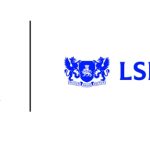CBN Tightens Monetary Policy to Combat Inflation and Ensure Economic Stability
By Patience Ikpeme
The Monetary Policy Committee (MPC) of the Central Bank of Nigeria (CBN) unanimously agreed to raise the Monetary Policy Rate (MPR) by 25 basis points, bringing it to 27.50% from 27.25%.
The decision was taken to address persistent inflationary pressures and bolster the stability of the Nigerian economy,
The CBN Governor Mr. Olayemi Cardoso made this known during a media briefing at the conclusion of the MPC’s final meeting of 2024, said increasing the MPR is a strategic response to ongoing economic challenges, underscored by the recent rise in food and core inflation rates.
Cardoso stated that the decision to tighten the monetary policy stemed from a thorough evaluation of the economic landscape, noting that both headline food and core inflation measures have risen on a year-on-year basis as of October 2024.
Notably, there was also a month-on-month increase, indicating sustained price pressures that adversely affect the income and welfare of citizens. “The committee was particularly concerned about this trend, urging us to remain focused on addressing price developments effectively,” Cardoso stated.
The MPC further decided to maintain the asymmetric corridor around the MPR at +500 to 100 basis points, keep the cash reserve ratio for Deposit Money Banks (DMBs) at 50%, and retain merchant banks’ ratio at 16%. The liquidity ratio remains unchanged at 30%, indicating a continued effort to ensure robust liquidity in the banking system while navigating mounting price pressures.
Cardoso acknowledged the federal government’s efforts to enhance security, particularly in Nigeria’s northeast region, which could help boost food production amid rising food costs. However, he also pointed to the significant impact of escalating energy prices, especially the recent hike in the price of Premium Motor Spirit (PMS), which has driven up production and distribution costs for food and manufactured goods. “We are optimistic that the full deregulation of the downstream petroleum sector will help eliminate scarcity and stabilize prices in the short to medium term,” he noted.
In a broader economic context, the MPC highlighted improvements in Nigeria’s external sector, evidenced by an increase in the current account surplus, heightened remittances, and capital inflows, which have positively impacted the nation’s foreign reserves. Positive indicators such as the capital adequacy ratio (CAR), non-performing loan ratio (NPL), and liquidity ratio (LR) signal strengthening health within the banking sector. The MPC stressed the importance of close surveillance of the banking system to maintain compliance with regulatory frameworks and promote industry stability.
Amid these developments, CBN governor Cardoso provided an optimistic outlook, revealing expectations that Nigeria will exit the Financial Action Task Force (FATF) grey list by the second quarter of 2025.
He outlined a roadmap to achieve this, involving the enhancement of regulatory frameworks, increased engagement with Intending Money Transfer Operators (IMTOs), and strengthened international cooperation to meet FATF’s expectations.
“We have restructured our engagement with IMTOs to facilitate easier transactions for Nigerians abroad, which has seen monthly remittances rise from $250 million to about $600 million,” Cardoso remarked, signifying a notable success in improving financial channels.
The CBN governor also addressed concerns surrounding the Naira’s performance against foreign currencies, insisting on the central bank’s commitment to maintaining stability in the currency market.
He noted that while the CBN plays a role in managing volatility, multiple economic fundamentals, such as supply and demand dynamics, balance of payments, and fiscal health, ultimately determine the value of the Naira. “It’s essential that Nigerians recognize the significance of supporting local goods while working to reduce reliance on foreign imports,” he stated.
As the country approaches the holiday season, Cardoso assured that the CBN is dedicated to ensuring sufficient cash flow for deposit money banks by engaging in regular communication to mitigate shortages.
He stated that there may be “ad hoc measures” implemented during the festive period to alleviate strains caused by demand fluctuations, promising that the bank is working diligently to manage any distortions that could affect consumers.




